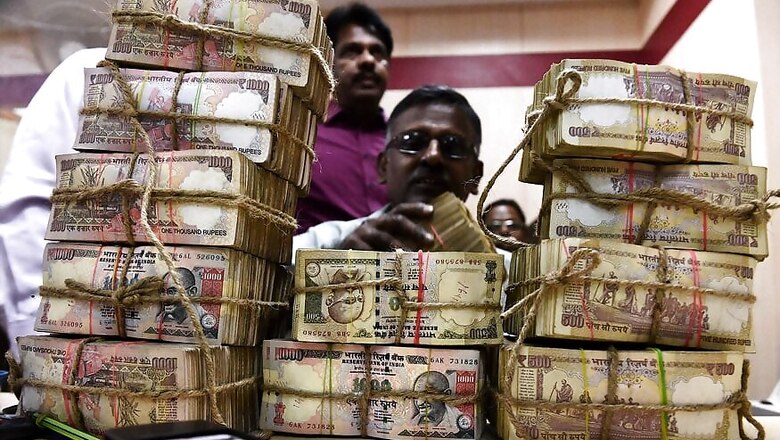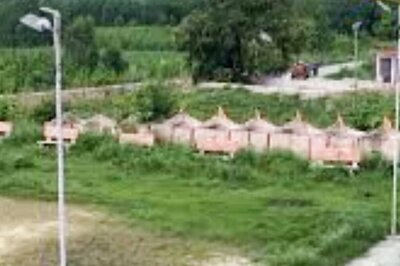
views
It's 1978 redux for most of the tribal states of the North East. When independent India’s first demonetisation was done by the Morarji Desai government, black money hoarders rushed to these tribal states whose citizens are exempt from paying income tax. Overnight, banks in small towns of Meghalaya, Nagaland, Arunachal Pradesh, and certain areas of Tripura saw huge number of ‘demonetised high value notes’ being deposited in the accounts of the poor or lower middle class tribal people. It was later discovered that the money was returned to the non-tribal businessmen, after taking a modest cut.
In various corners of the North East, where citizens are exempt from paying income tax, the story is repeating itself. As per section 10(26) of the Income Tax Act, a member of a Scheduled Tribe residing in any area specified in the Sixth Schedule of the Constitution – which covers autonomous administrative areas like Dima Hasao, Karbi Anglong and Bodoland Territorial Area District in Assam, and the Khasi, Jaintia and Garo hills in Meghalaya – or the states of Arunachal Pradesh, Manipur, Mizoram, Nagaland and Tripura, is exempted from paying tax on any income that accrues from any source in the concerned area or state.
The income tax probe into the Rs 3.5 crore recovered from a chartered flight in Dimapur revealed over Rs 11 crore has already been taken from an obscure Hissar air field in Haryana allegedly to the account of Anato Zhimoni, who is a son of a former MP and son-in-law of the three time Nagaland Chief Minister and current Lok Sabha MP from Nagaland Neiphiu Rio. It was later found out that Anato was supposed to have transferred the same money via bank transfer.
And this is no individual case. In any small town in Nagaland, Meghalaya or Arunachal, there is a strong buzz about the money coming in. In some of the towns of Nagaland like Tuensang and Phek, cash to the tune of hundreds of crore has been deposited in the accounts of the tribal citizens.
Sources say a detailed situation would emerge only post December, when the deposits are brought to light. The situation is such that the Finance commissioner of Arunachal Pradesh has sent out a strong circular saying it is 'abundantly clear that some people are using other people's bank accounts to convert their black money into new denominations for which certain rewards are also being given to the account holders…if it is established that the amount deposited in the account was not of the account holder but somebody else's, such person is liable for prosecution for abetment of tax evasion under IT Act.’
"A lot of cash is coming in from places like Delhi, Jaipur and Surat in SUVs, flights and even chartered plane," says a source close to a businessman in Dimapur.
CISF has been put on high alert for all the airports and air strips which fall in, or are close to these tax havens. Some airport authorities, on condition of anonymity, say cash is often brought in on routine flights and not just chartered flights. The security loopholes of these small airports are then used by them to ferry the money to the desired bank accounts.
There is a spike in deposits in the tourist destination of Sikkim as well. Money here is generally brought in by business contacts of locals, who often help them in running their tourist lodges and hotels.
A press release of the Sikkim government says ‘Sikkim Govt Cautions 'Sikkimese' (Income Tax Exempted Citizens) not to entertain cash or park cash of 'Non 'Sikkimese' in 'Sikkimese' bank account this will lead to offence and central govt has strongly imposed strict action. Black money hoarders could misuse such bank accounts’.
When Prime Minister Modi demonetised Rs 500 & Rs 1000 currency notes, it was widely believed that black money hoarders have been rendered handicapped. But instead it seems it is ‘ache din’ for accountants who have suddenly remembered the oft forgotten brothers and sisters of the North East.



















Comments
0 comment